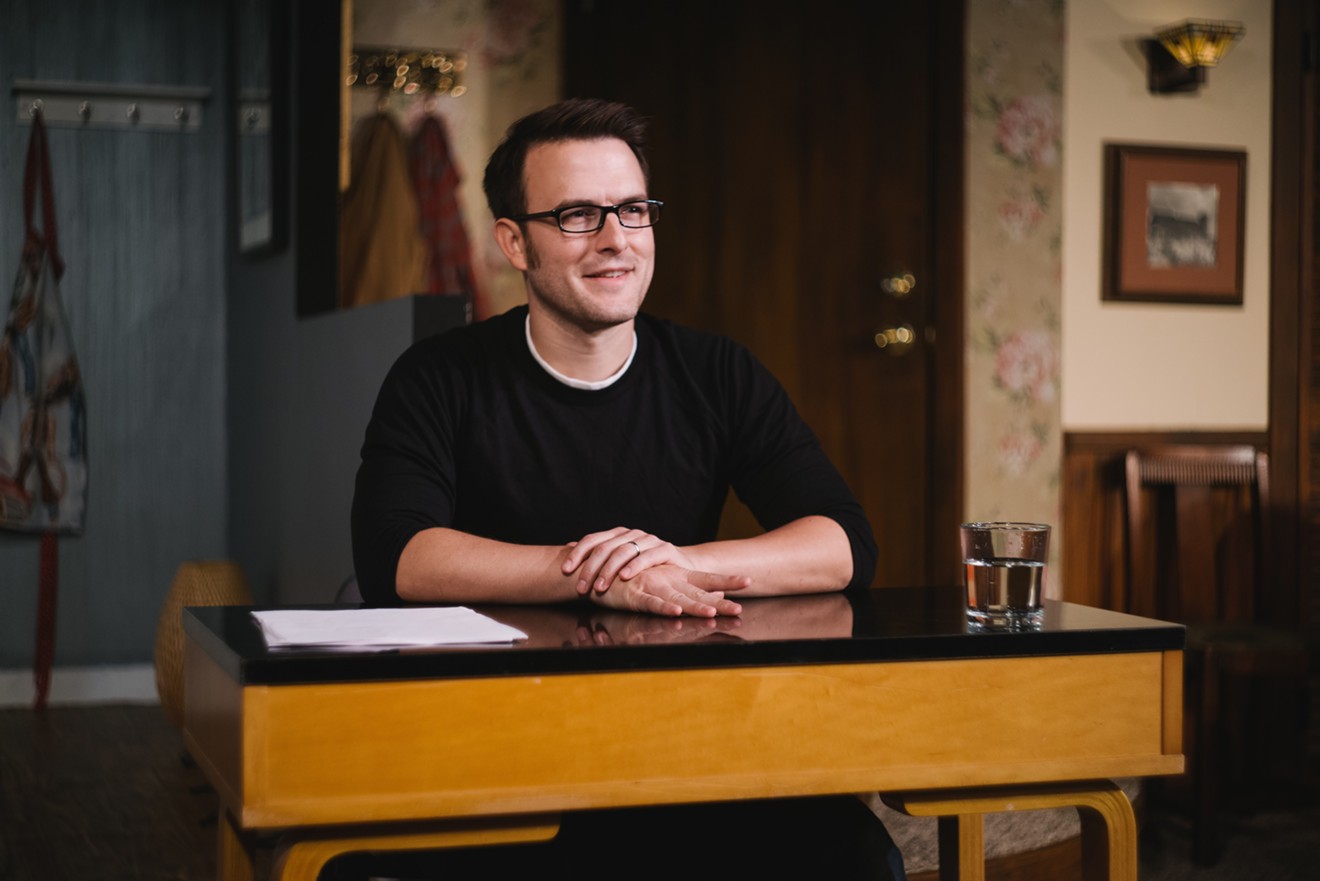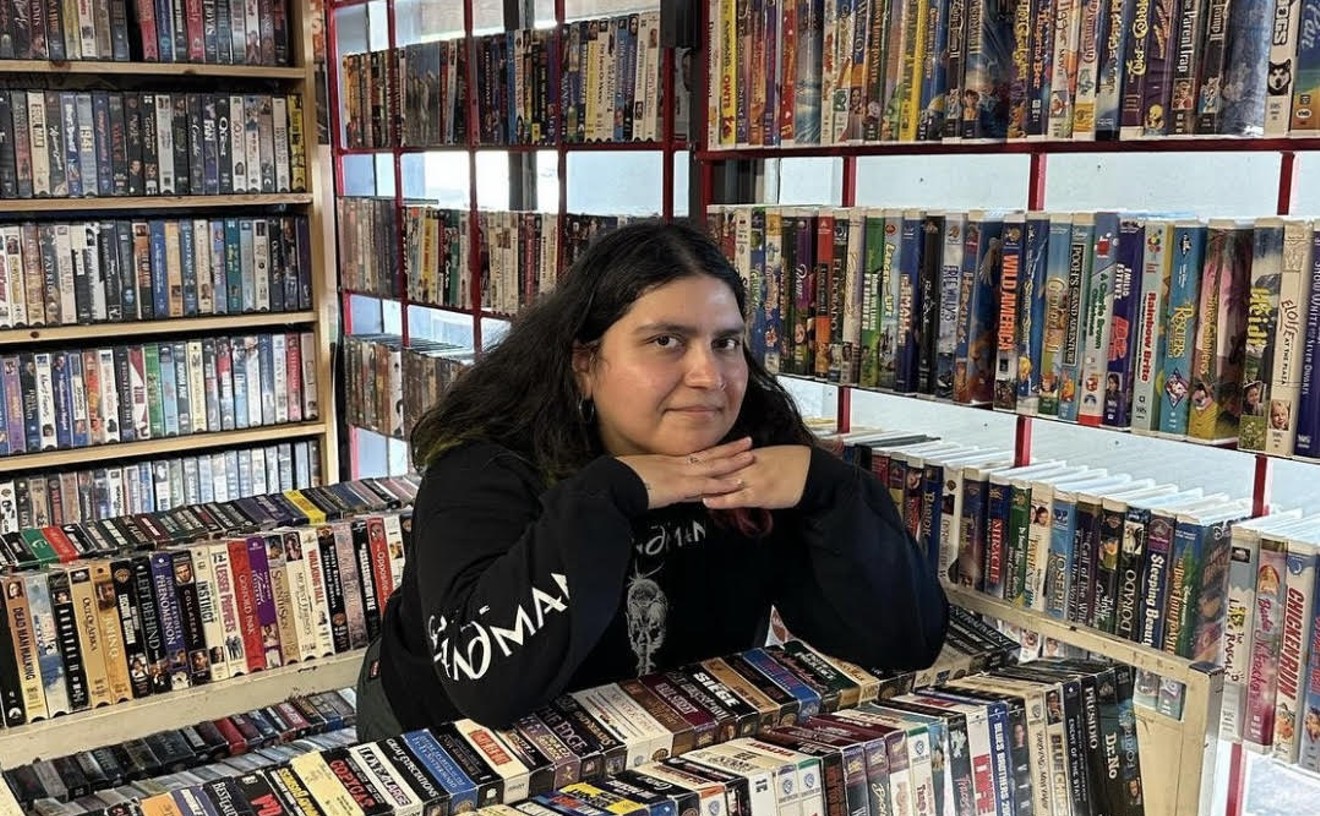But he remembers their first meeting, their first sleepover and their first day of first grade. He remembers how the video game controller felt in his hands when he and Joey would stay up all night battling; the sunlit, winding path he’d ride to Joey’s house and the taste of the warm Safeway Select Skipper soda they would smuggle into Joey’s room and tell anyone who’d listen, with irony masking fondness, that it was their favorite drink.
In high school, Joey switched to beer, one of the first cracks in their union. The fissures continued until, decades later, Facebook notifies Lemieux that it's Joey's birthday. Except now, Joey isn't Joey anymore. He's "Joe."
Lemieux, the star and author of Warm Soda, is a gifted writer and assured monologist. His no-frills performance Sept. 10 in Theatre Three’s Theatre Too space, which lasted for nearly an hour and a half, bodes well for a showing at the United Solo Theatre Festival in New York on Sept. 20; he held attention solely on the strength of his storytelling and stage presence.
Certain facts are unthinkable as children, but as adults we know them well. Time runs out. Friendships run their courses. People grow together or apart, but usually apart. Lemieux takes this universal experience and kaleidoscopes it.
tweet this
The mise-en-scène, staged by local director and composer Jake Nice, was minimal. Lemieux entered to the bleep-blurps of video game music, sat at a desk center stage and remained there for the duration of the piece. Occasionally, he paused to flip through his notes or sip from a glass of water.
The set was borrowed from Theatre Too's production of Cedar Springs by Matt Lyle. It's split down the middle into a modern-looking home on the left and a carpeted '70s-style den on the right (the latter holding a nostalgia totem for the Born Again generation: a collage of mismatched crucifixes on one wall), is not interactive.
An audio-visual element, such as a screen to display the video games Lemieux mentions or one of the home movies the friends filmed and later charged their parents admission to view, might have heightened the experience. But the piece works as is, in part because Lemieux’s memories are so detailed, evocative and relatable — for anyone with a Joey, but especially for millennials who, like Lemieux, count the 1990s as their formative years.
Lemieux, who completed his MFA in acting from Southern Methodist University in 2016, grew up in a suburb of Mesa, Arizona. He came of age in a technological boom he recalls with striking clarity: the Commodore 64 Games System he struggled to load on an old computer in his parents' converted garage before upgrading to Joey's Nintendo and later, Sega Genesis; the Game Genie they employed for infinite lives; and the VHS camera they used to record the first two films in a planned trilogy that never saw completion.
There was never enough time to finish what they were doing, Lemieux says. They were always making plans for next time, missing the last times even as they occurred.
In hindsight, Lemieux can see his friendship's fault lines, and he alternates between the past and present to foreshadow the eventual split. There are two types of kids, he asserts: the type with the healthy food at their house, and the type with junk food. Joey was the junk food kid. Joey's house was the escape.
As it goes, Joey matured faster. He landed a girlfriend two years before Lemieux's first kiss. Lemieux fell in with the theater kids, and Joey discovered hardcore rap. Joey made new friends who were content to stand around and do nothing but drink. Joey only became available on the weekends. Joey went to another college and started wearing camo and taking gym pics. Joey became Joe.
Certain facts are unthinkable for children, but as adults, we know them well. Time runs out. Friendships run their courses. People grow together or apart, but usually apart. Lemieux takes this universal experience and kaleidoscopes it; one gets the sense, in the dark, shared space, that a highlight reel of childhood is playing in the mind of each audience member at the same time that Lemieux plays his.
Lemieux understands that the power of collective nostalgia depends on the intoxicating combination of comfort and bittersweetness, like a sugary soda that's turned lukewarm. Lemieux's skill as an artist lies in his ability to remind us, with humor and pathos springing from shared cultural touchstones, that we are not the only ones who remember.












